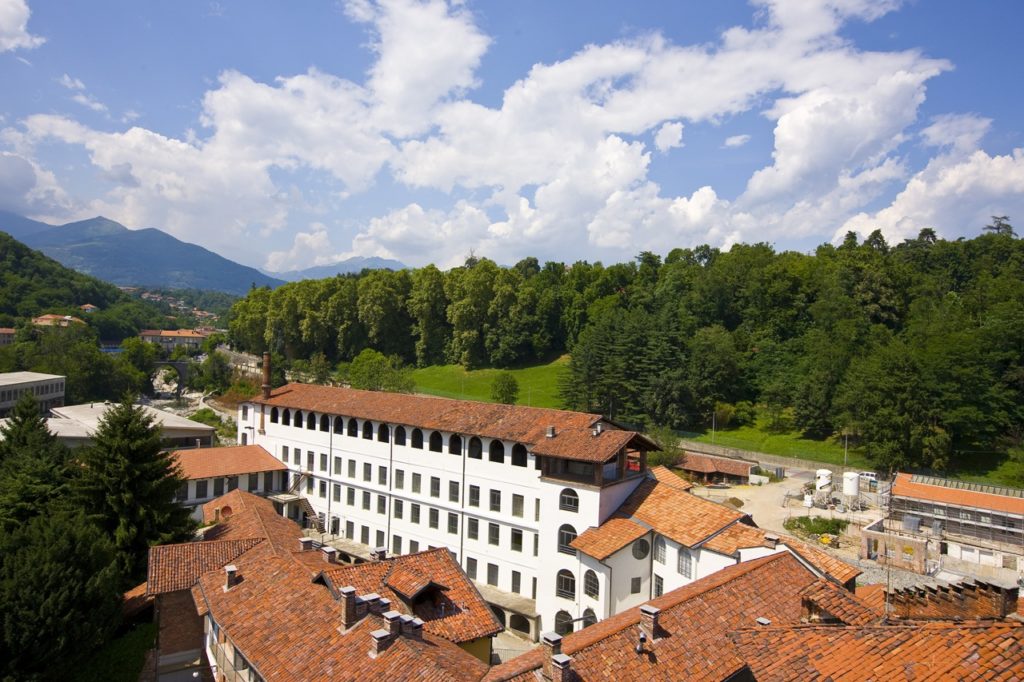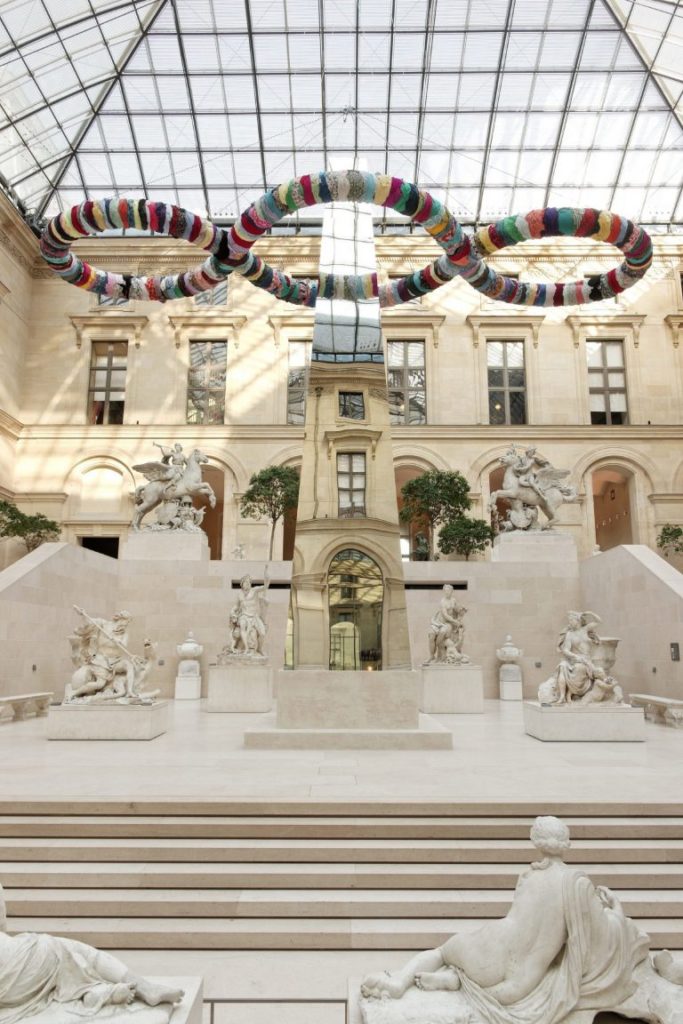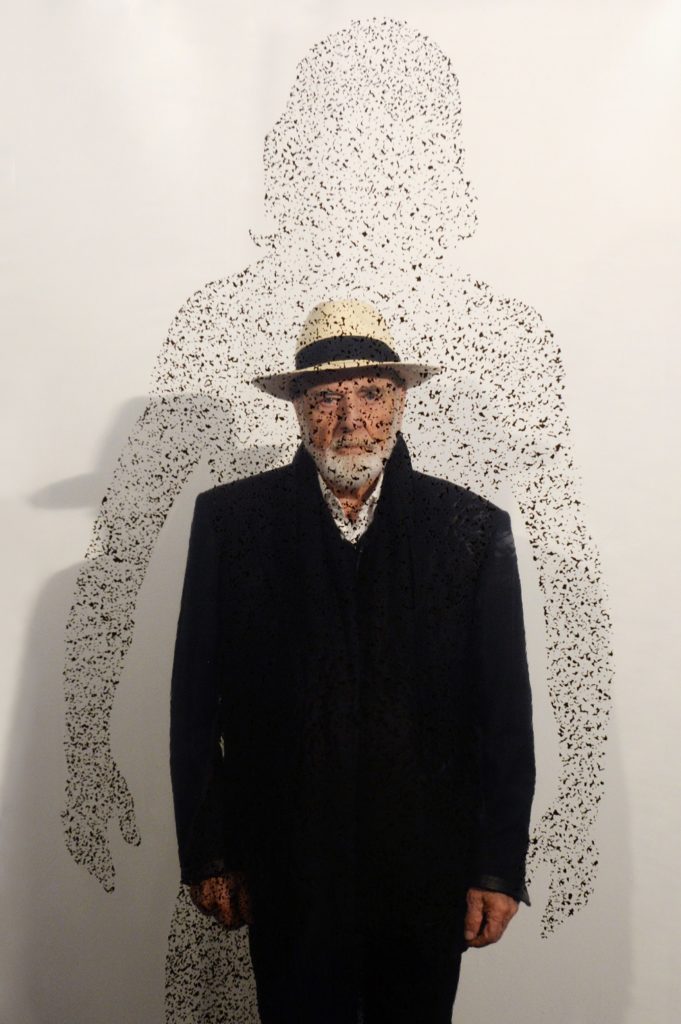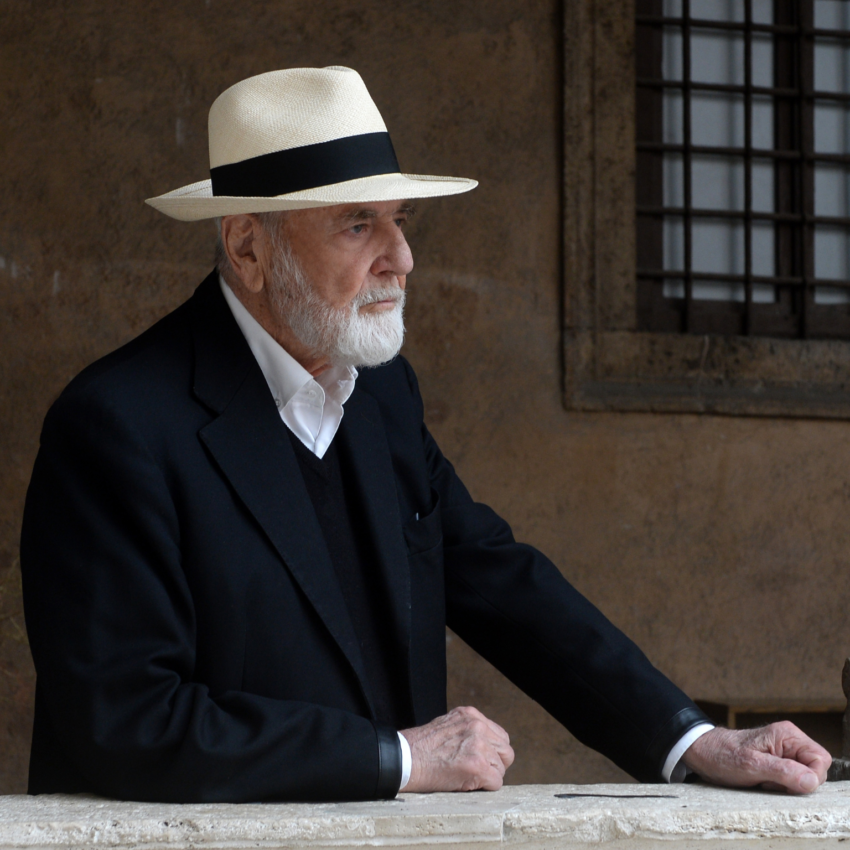Share the post "“The concept of memory in my work leads us to think of a new perspective towards the future”. Interview with artist Michelangelo Pistoletto"
Michelangelo Pistoletto (Biella, 1933) is one of the leading exponents of Arte Povera, an avant-garde artistic movement that originated in Italy in the second half of the 1990s when some artists began to create works of art with recycled, humble, and daily use.
A rich artistic production that ranges from paintings, installations, sculptures, and performances, and therefore telling its journey means tracing a part of the history of 20th-century art. Golden Lion for Lifetime Achievement at the 50th Venice Biennale (2003), Pistoletto is known for his conceptual works created with the aim of actively involving the viewer within each work, between social art and public art.
Among his main projects are the Mirror Paintings, the Cittadellarte, the Third Paradise, and La Formula della Creazione (The Formula of Creation), the latest editorial project in which the Italian artist retraces his artistic thought to date.

In 1998, in a former textile factory, he founded Cittadellarte, a large creative laboratory whose name encompasses two meanings: citadel (cittadella) as a place of protection and defense, and city (città) as an idea of comparison, openness, and opportunity with the rest of the world.
The Third Paradise manifesto was presented in March 2003 and represents the third phase of humanity which finds its origin in the balanced connection between artifice and nature which is essential to ensure the survival of mankind, precisely the Third Paradise. The logo of the project comes from the mathematical symbol of infinity in which the circle on the left and on the right represent the two elements that meet in the center where the existing is born, that is the finite within the infinite.
After the retrospective Année 01 – Le Paradis sur Terre (Year 1 – Earthly Paradise, 2013) at the Louvre Museum, the Italian artist who recently celebrated his 90th birthday was one of the protagonists of the Leçon d’Artiste series of meetings in the Parisian museum and to know how it went, among other things, we asked him in this exclusive interview for MuseumWeek Magazine.

“These were three lessons following my exhibition at the Louvre which was held in the different departments of the museum in close connection with its spaces. We thought about holding these meetings to illustrate how my work and the museum could identify with each other. Indeed, in the exhibition, the work reflects the Louvre Museum because in the Mirror Paintings, you can see the ancient works, but also the visitor, therefore also today’s life: there is a need to connect the museum to it with a new possibility of interaction with the current world”.
So to find a new perspective?
This is what interests me because in the mirror there is not only the concept of Renaissance perspective, that is, looking forward; in the mirror, we also look behind our backs because we also see what has been. So the museum is the right place to show this past.
Projections of my work were made which, together with the sculptures, were taken to the Louvre in Abu Dhabi: a total of eleven works that I made in Paris with people who frequented the Museum at the time, so there was also an exchange between the two Louvre locations.

The figures that I impress in the mirror paintings are figures that are part of a costume, of a social and political period, in which we also see objects that were very modern at a certain time and are obsolete today. In my work, there is the practical concept of “memory” which leads to thinking of a new perspective that looks both forward and backward, both in the past and in the future.
Between wars and the pandemic, global society has changed a lot today. To find the Third Paradise today, what do you think is the most important priority?
There is a lot of talk about sustainability and the UN has issued 17 goals, but unfortunately, the reality is going in the opposite direction. We have reached a point where the concept of “creation” that lies in the Formula needs to be applied to start with schools, universities and opening new academies, as we did in Biella with UNIDEE – Accademia delle Idee (Academy of Ideas), which opens the third stage in society.
Continue on MuseumWeek Magazine.
